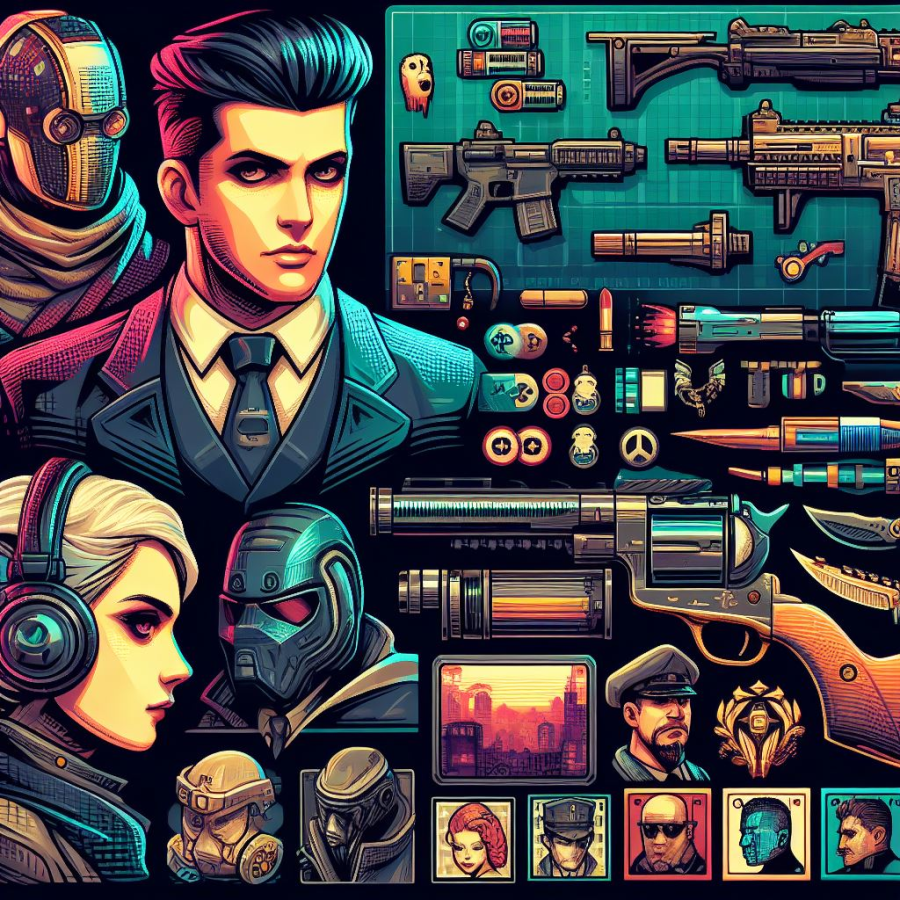Skins capture a significant part of CS2. While some players invest substantial sums in them, others, especially beginners or those with limited budgets, cannot. However, there are several alternatives to acquiring high-value items in the game, such as Trade Up Contracts. Although they may seem unfamiliar at first, rest assured, we’re here to explain everything you need to know about them. Let’s get started!
What Is a Trade-Up Contract?
CS2 (CS:GO) Trade-up Contracts are an integral part of the game mechanics and are operated within the game itself, facilitated by Valve Corporation. The system offers players a strategic way to manage their inventory and potentially acquire more valuable items. By pooling together several less desirable skins, players can engage in Trade Up Contracts to obtain a single skin of higher rarity, which may have greater aesthetic appeal or market value.
While Trade Up Contracts offer players the chance to potentially receive a more favorable skin, there is no guarantee of success. The outcome of a Trade Up Contract is determined randomly, meaning that players could receive a skin of higher, equal, or even lower value than the ones they submitted. Therefore, participating in Trade Up Contracts involves a degree of risk, and players should carefully consider their options before initiating a contract.
How Does It Work?
Here’s an explanation of how Trade Up Contracts function:
- Selecting Skins: Players begin by selecting a set of weapon skins from their inventory that they wish to trade up. These skins typically belong to the same collection and are of lower rarity than the desired outcome.
- Submitting Skins: Once the desired skins are chosen, players submit them as part of the Trade Up Contract. The selected skins are then removed from the player’s inventory and entered into the contract.
- Rarity Level: Trade-Up Contracts operate based on the rarity level of the submitted skins. The skins must belong to a specific rarity tier, such as Consumer Grade, Industrial Grade, Mil-Spec, Restricted, or Classified, depending on the desired outcome.
- Outcome Determination: Upon submitting the skins, the Trade Up Contract calculates the outcome based on the rarity and collection of the submitted skins. The result is determined randomly, with a chance of receiving a skin of higher rarity from the same collection.
- Receiving the Skin: If the Trade Up Contract is successful, players receive a single skin of higher rarity from the same collection as the submitted skins. This outcome may include StatTrak variants, which track in-game kills made with the weapon.
- Chance Factor: As mentioned above, Trade Up Contracts involve an element of chance, and the outcome is not guaranteed. Players may receive a skin of higher rarity or one of equal or lower value, depending on luck.
Benefits and Alternatives Explained
Let’s first explore the benefits of this method. If you’re still not convinced, we’ve prepared several alternative methods to help you easily obtain valuable skins.
Reasons to Engage in Trade-Up Contracts

Upgrade Potential: CS2 Trade Up Contracts offer players the chance to potentially upgrade their inventory by exchanging lower-tier skins for higher-tier ones. This provides an opportunity to acquire more desirable and valuable skins that may otherwise be difficult or costly to obtain.
Diversify Inventory: Trade-Up Contracts provide players with an opportunity to diversify their inventory. This allows players to expand their collection and explore a wider range of skins, adding variety and excitement to their gameplay experience. Additionally, these contracts can also help you to acquire skins that you may not have considered adding to your inventory otherwise, further enriching your collection with unexpected and unique options.
Economic Efficiency: Trade-Up-Contracts can be a cost-effective way for players to acquire desirable skins without having to spend additional money on purchases or trades. This allows players to effectively manage their in-game assets and optimize their inventory without having to make direct purchases or trades, thereby maximizing their economic efficiency in acquiring desired skins.
Exploring Alternative Options
If the goal is to get rid of the skins you don’t want and add a new, more valuable skin to your inventory, there are several other methods for achieving that:
Direct Purchases: Players can directly purchase the skins they desire from the Steam Community Market or other third-party marketplaces. To make these direct purchases, players need funds, which can be easily obtained by selling unwanted skins from their inventory. This method offers a straightforward way to acquire specific skins without relying on chance.
Skin Trading: Engaging in skin trading with other players allows for the exchange of skins directly. Players can negotiate trades or use trading platforms to swap skins, potentially obtaining desired items without the randomness of Trade Up Contracts.
Case Opening: Opening cases with keys obtained in-game or purchased from the Steam Community Market presents another method for obtaining skins. While this method also involves chance, it offers the excitement of potentially receiving valuable skins directly from cases.
Wrapping It Up!
In conclusion, Trade Up Contracts present players with an alternative avenue to acquire high-value items in CS2. These contracts enable players to exchange multiple lower-tier skins for a chance to obtain a single higher-tier skin from the same collection. By utilizing Trade Up Contracts, players can enhance and diversify their inventory or even realize economic benefits. However, it’s important to note that Trade Up Contracts represent just one of several methods for acquiring skins in CS2. Players have the option to directly purchase skins from marketplaces, engage in skin trading with other players, participate in community giveaways and events, or test their luck with case openings.






 Your total news and information resource for all things Science, Technology, Engineering / Mathematics, Art, and Medicine / Health.
Your total news and information resource for all things Science, Technology, Engineering / Mathematics, Art, and Medicine / Health.
Leave a Comment